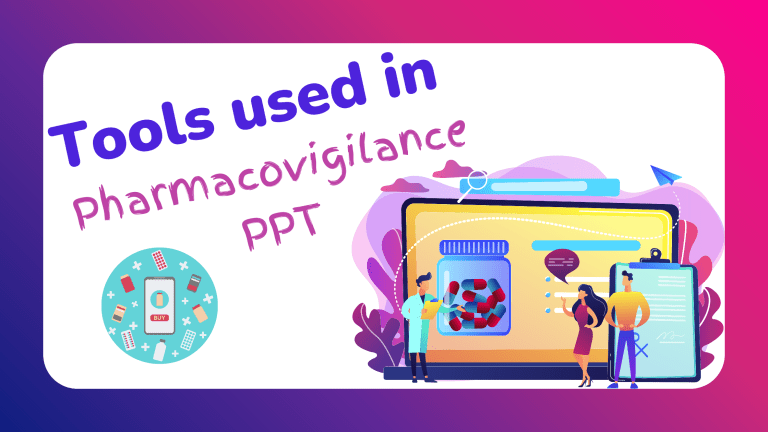Top Trends in Pharmacovigilance Education: How Online Courses Are Shaping the Future
Top Trends in Pharmacovigilance Education: How Online Courses Are Shaping the Future
Introduction
Today, healthcare is changing fast, and pharmacovigilance—monitoring the effects of drugs after they’re used—is more important than ever. It helps keep patients safe, meaning healthcare workers need to be well-educated and aware. At Pharmacovigilance Foundations, we know how vital pharmacovigilance is for healthcare. It helps professionals find and report the bad effects of medicines to agencies like the FDA. However, the way we learn about pharmacovigilance is changing. Thanks to online courses, learning is now more accessible and flexible compared to traditional methods. In this blog post, we’ll discuss how online courses are shaping the future of pharmacovigilance education.
1. The Rise of Online Pharmacovigilance Education
The world is becoming more digital and education is changing too. Online pharmacovigilance courses have become more popular, changing how people learn about this important field.
– Growth in Enrollment: Many more people are enrolling in online pharmacovigilance courses. In the last five years, there’s been a 150% increase. This shows people see the value in this way of learning.
– Benefits of Online Learning: There are many reasons online learning is good. It’s accessible, flexible, and lets you learn at your own speed. You can study while working and use what you learn right away.
– Comparison with Traditional Methods: Unlike traditional classrooms, online education offers flexibility and more access. It allows people from all over the world to get top-quality education.
2. Key Trends in Pharmacovigilance Online Courses
2.1. Increased Accessibility
Online pharmacovigilance courses are making education available to everyone globally.
– People in remote areas can now get great training and keep learning.
– These courses offer opportunities for those in places with few traditional schools, building a community of well-informed professionals worldwide.
2.2. Interactive Learning Environments
The days of just listening to lectures are over. Today’s online courses keep learners active with interactive learning.
– Webinars and live Q&A sessions make learning better by allowing students to talk with experts in real-time.
– Virtual reality (VR) and simulations offer hands-on experiences to help understand complex ideas better.
– Elements like quizzes and games keep learning fun and help students stay motivated.
2.3. Personalized Learning Paths
Today’s online pharmacovigilance courses let you customize your learning.
– Course technology can adjust to fit what you know, so you learn at a speed that’s right for you.
– You can choose what to study based on what you need to know for your job or what interests you.
– Real-world examples show how tailored learning makes education enjoyable and rewarding.
2.4. Partnerships with Industry Leaders
Working with industry experts helps make course content more relevant.
– Schools team up with pharmaceutical companies to create content that is up-to-date and relevant.
– These partnerships help ensure that what you learn reflects what’s happening in the industry right now.
– This kind of education prepares you to handle real-world challenges.
2.5. Focus on Emerging Topics
Course topics are updated regularly to include the latest in pharmacovigilance.
– Classes on new drug types are growing in popularity as the pharmaceutical world changes.
– Training on gene therapies and personalized medicine helps professionals prepare for future patient care needs.
– Understanding global rules ensures professionals can manage pharmacovigilance globally.
2.6. Modular Learning Approaches
Online pharmacovigilance courses are very flexible.
– You can mix and match courses to fit your schedule and interests.
– This is great for working professionals who need to balance their job and studies.
– Studying in modules allows you to dive deep into topics you are interested in.
2.7. Microcredentialing and Certification
In the digital age, new ways of showing skills are emerging, like microcredentialing.
– More and more people are earning microcredentials and digital badges to quickly show off skills to employers.
– Certification programs are popular because they offer credibility in specific areas of pharmacovigilance.
– Employers are starting to see microcredentials as a valuable way to prove skills and specialization.
2.8. Lifelong Learning and Continuous Updates
Pharmacovigilance involves constant learning, as it’s a changing field.
– Online platforms offer regular updates on the best practices and regulations, helping professionals stay ahead.
– Continuous learning helps professionals adapt to new challenges.
– Developing forward-thinking skills gets learners ready for the changing nature of healthcare and pharmacovigilance.
3. Challenges and Opportunities in Online Pharmacovigilance Education
Even with many benefits, online learning in pharmacovigilance comes with challenges.
– Some people hesitate to change and may doubt the seriousness of online education.
– Technology issues like poor internet can slow learning, but better infrastructure can help.
– Improving online education involves creative course design to keep learning engaging and effective.
4. Case Studies and Success Stories
Some institutions are leading the way in online pharmacovigilance education, setting standards for others.
– Universities like Harvard and platforms like Coursera have been very successful with their programs.
– Healthcare professionals often share stories about how online courses improved their careers.
– Committed students have made successful career changes, thanks to new pharmacovigilance skills.
5. The Future of Pharmacovigilance Education
Looking ahead, pharmacovigilance education has lots of potential.
– In the next five to ten years, AI and big data will likely become a part of learning, offering deep insights.
– Regulatory bodies will help shape education standards, ensuring relevance.
Conclusion
In short, online pharmacovigilance courses are changing education in this crucial healthcare field. They provide the flexibility and engagement that traditional methods struggle to offer. As healthcare continues to change, so will the ways we learn and adapt. At Pharmacovigilance Foundations, we’re thrilled about these developments and are ready to support professionals as they navigate the world of pharmacovigilance. Whether you’re new to pharmacovigilance or expanding your knowledge, now is a fantastic time to explore online education in this field.






